How Safe Is Costa Rica?
Costa Rica has become one of the most popular expat and digital nomad destinations in Latin America, known for its natural beauty, relaxed lifestyle,...
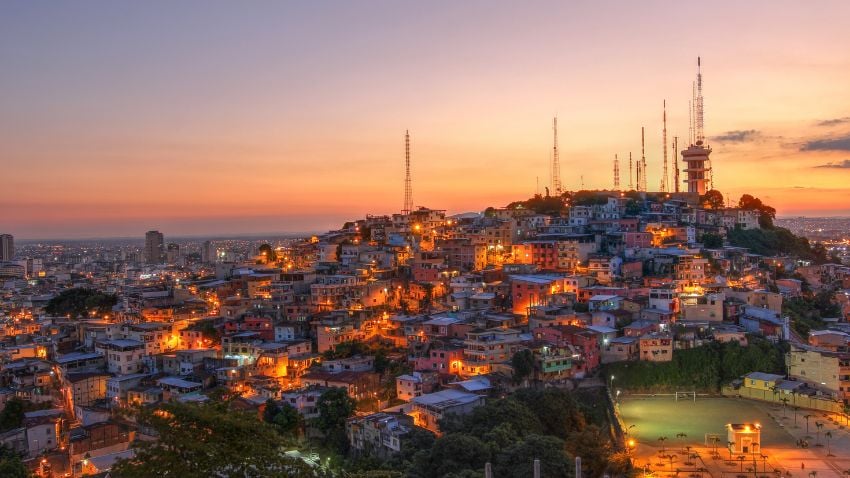
7 min read
Of all the places I’ve visited in Latin America, Ecuador has stood out as one of the most developed and beautiful locations throughout the continent. There are places where you move because you have a great job or hold a lot of investments, and there are places where you move to because they’re just great places to live in—Ecuador is both.
The country is one of the more promising South American nations, close to the heels of Brazil and Argentina, with a very open investment-friendly economy and extremely welcoming of foreigners from across the world.
At the moment, if someone were to ask me what country they should move to, I’d tell them to go to Ecuador without a second thought. I’ve been following the current affairs in the country pretty closely over the past few months, and I think that it’s time more people moved into the economy. For one thing, the country needs it, and for another, there is significant financial potential. Finally, there’s the fact that no other place in the world is as beautiful as the urban-natural sprawl in Ecuador. So, I am writing this blog to explain to more people why they should really go to Ecuador.
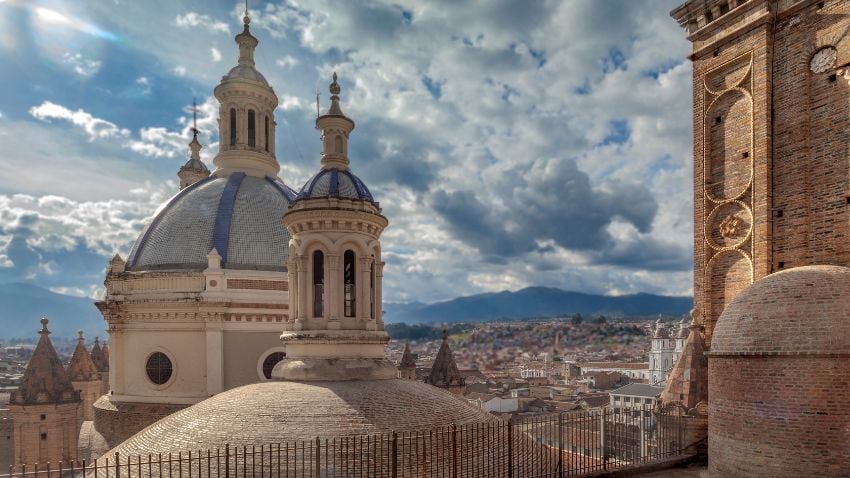
Cuenca Cathedral, Ecuador
Sometimes, I feel that the internet has done everyone a massive favour by providing an unlimited source of information. Reading the narrative people have going for Ecuador is making me reconsider my valuation of the internet. As it stands, the country’s in the middle of a major debt crisis that it’s trying to relieve with assistance from the IMF. The aid is to improve the economy’s liquidity crisis in return for implementing specific economic measures.
These conditions include taking fiscal austerity measures and restructuring the economy. There’s considerable emphasis on opening Ecuador’s economy to greater Foreign Direct Investments and creating avenues for foreign investors to inject more capital into the economy. There’s also an export-oriented development plan requiring the government to reduce fiscal expenditures and improve supply-side efficiency. As the government cuts spending on wages and social security, the lower salaries might contribute to a price reduction that makes Ecuadorian exports less dear in the global economy. This is effectively a two-tiered approach that creates room for greater efficiency, reduces tax burdens on investors, and sets the path for the economic development of Ecuador.
The detractors of this economic plan claim that there is absolutely no way that this plan might succeed since the dollar is pegged far too high. While it’s a hazard to make any economic policy that people will have something to say about, these people are one of those safe-playing proponents of unimaginative and destructive economic policies. These are the same people who tell you not to make risky investments like real estate or precious metals because “there’s no telling what will happen.” The problem with their economics and financial advice is that they’ve learned these “rules” of investing and never shifted from them. They play around with people’s money to make massive commissions like lapdogs of an exploitative state system. With their thoughts and remarks, they convince people to steer clear of what they deem risky investments, creating investment bottlenecks that threaten economic stability and individual financial growth. These very same people have tried to convince the world not to shift its funds to Ecuador, even though the advantages are right there in the face. Contrarian investors, on the other hand, are more than willing to step in because they realize something that everyone else, in their zeal to play safe, is blind to see—Ecuador is the next emerging economy.
These conformist investors effectively convince people to stay out of markets like Ecuador. In the process, they keep lining their pockets with cash and not even keep the money but pay taxes and other financial penalties to the state system that’s brainwashed them. It’s idiotic, really—they take people’s money and not even for themselves.
Related content: Benefits Of Obtaining Citizenship In The Andean Community
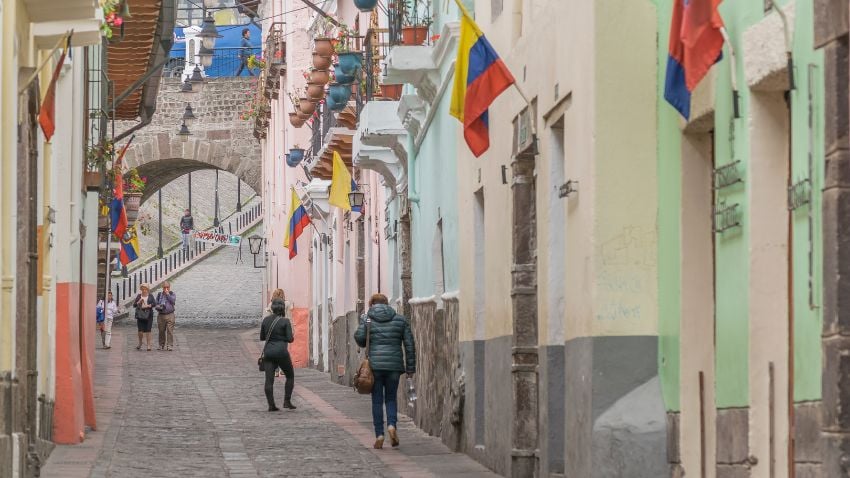
La Ronda in Quito, Ecuador
One of the reasons why Ecuador faces a budget shortfall is the fuel subsidies, which cost the country $1.3 billion annually. A few weeks ago, Ecuador President Lenin Moreno slashed these subsidies and sparked nationwide protests that kept the country’s oil production paralyzed until these abated when the subsidies were restored. According to analysts, the only option left is to lay off public sector employees if the government is to cut its spending, but the president is balking at the decision.
This is where the need for foreign investment comes in. The Ecuadorian government is hesitant about cutting jobs because of the resulting unemployment—a problem arising out of fewer opportunities for private employment. This gap can be easily filled with the introduction of bills like the Organic Law for Productive Promotion, Attraction of Investments, Generation of Employment, and Stability and Fiscal Balance. The bill offers tax exemptions for up to 15 years for any new investments in specific priority sectors of the economy. These priority sectors include the agro-industry, petrochemical industries, and other public amenities like water and electricity. People don’t realize that these sectors essentially form the core of international trade conducted by Ecuador. The introduction of these laws puts you at the center of Ecuador’s global trading markets in a country that’s already pretty cheap to operate in.
The people saying there’s no way that the Ecuadorian government will recover from its economic crisis don’t understand how economics works. Assuming the government lays people off, you get access to a large group of skilled labourers who are ready to take up these jobs. The low wage rates will effectively give you greater profit margins while keeping your expenses down. There’s a kickback, too—the Ecuadorian government might very well recover from its economic crisis. With the lower wages, the influx of labour into the market, and the tax exemptions, the smart producer will always offer lower prices than its competitors. So, even if Ecuador uses the US dollar, it’s not likely that the plan will fail.
Related content: The Basics Of How To Get A Second Passport Or A Second Residency.
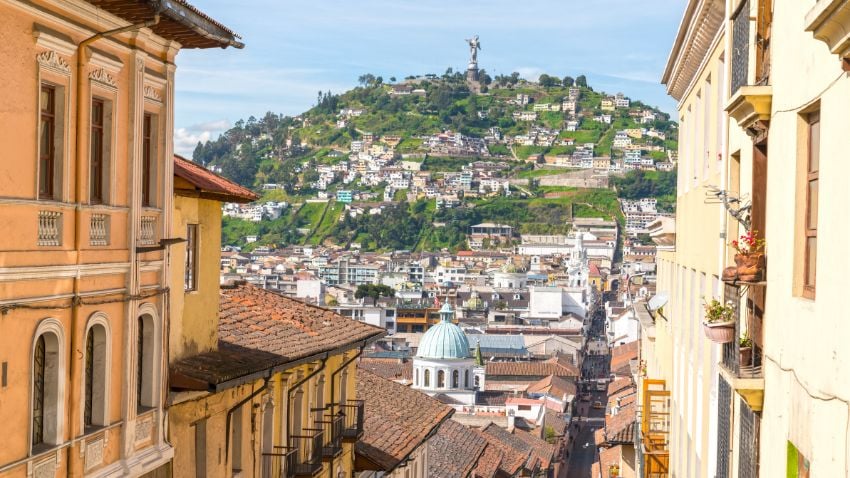
Quito, Ecuador
It’s a mark of how effective these policies are turning out to be, considering the improvements in Ecuadorian FDIs in the past quarter. Despite the civil unrest, the country resumed its oil production and exports while enjoying an FDI increase of 52% by the end of the last quarter. Things are working out for Ecuador, and anyone who disagrees doesn’t know what they’re talking about.
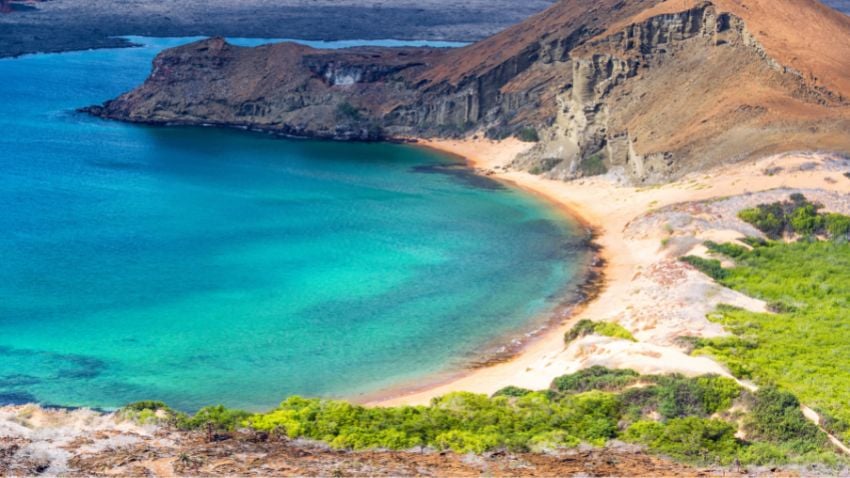
Beach on Bartolomé Island in the Galápagos Islands, Ecuador
Now that I’ve laid to rest some of the doubts concerning the economic state of affairs in Ecuador, there’s plenty more to say about why it’s the place to move into.
Convenient Tax Systems
Beautiful Landscapes and Geography
Something for All Thrill Seekers
A Land Filled With History
Low Cost of Living
Since the Ecuadorian administration introduced the Organic Law, the business environment has become exponentially more feasible for the individual investor. Considering how the Ecuadorian government isn’t charging any taxes at all, it says a lot about how much profit potential exists in the economy. When you add to this mix the encouragement to invest in priority sectors, you get to capture all of Ecuador’s trading markets under the banner of any businesses you set up. It’s not just the taxes— Ecuador’s selling its trade market shares to anyone who’d like to take a crack at it. The government also doesn’t charge any payroll taxes or minimal property taxes.
Ecuador is one of those countries in the world that have preserved much of its natural cover while maintaining a fairly decent urban infrastructure at the same time. The country is a beautiful amalgamation of coastal plains, highlands, and jungles. If you’re looking to live in a country that gives you a taste of each type of climate, Ecuador’s the place to go.
In addition to this geographical versatility, the weather is one of the mildest across any other country in the world. If you’re going there to relax and live a comfortable life, there’s no better place than Ecuador, which offers the same comfort.
Considering the versatility of geography, there are plenty of things for people to do in Ecuador. In the highlands, people can go kayaking, mountain climbing, mountain biking, and sightseeing at the active volcanoes in the region. Many individuals who retire at an early age frequent these adventure-sport spots to get the most out of the adrenaline rush offered by the rugged landscapes of Ecuador’s highlands.
For those looking for something a bit mellow, the coastal region is filled with businesses that take you whale watching and scuba diving. The marine ecosystems around Ecuador are some of the most vibrant, owing to the lack of industrial activity in the region. This is why millions of people go to Ecuador to enjoy the clean beaches, which remind you of the beauty of the Caribbean.
Ecuador is one of those regions which were once occupied by the Aztec and Incan civilizations for thousands of years. With the arrival of the Spanish to the continent, the Aztecs and Incans were wiped out, but plenty of historical landmarks point out their existence and ways of life. For history buffs, there are plenty of archeological sites they can visit till they can’t explore more.
The Tulipe-Site Museum is one of the most notable archeological digs in Ecuador. The place is said to be occupied by the pre-Incan Yumbo civilization, which was the progenitor of the Incan people. Similarly, you have places like Cochasqui Research Park, which was once the home of the Quitu-Cara people and the Ingapirca Archeological Complex. Each of these places represents the cultural wealth of human civilization as a whole and represents one of the starting points of where our ancestors came from. If you’re looking to learn lessons from history, Ecuador is one of the places you should live in.
This really applies to all the places in South America, irrespective of whether the country uses the dollar as currency or not. If you’re living frugally, your cost of living is less than $1000 USD because everything’s cheap in the country. Real estate and rent aren’t high, fuel is pretty reasonable because of government subsidies, and anyone with some wealth can live like a king in the country.
People assume that living in a country like Ecuador would be very inconvenient because of cultural barriers, but they can’t be farther from the truth. Currently, the country is a trendy destination for retired expats worldwide. It’s one of those things which makes Ecuador a culturally vibrant place and easy to settle down in.
Although the national language of Ecuador is Spanish, most people in the country are reasonably fluent in English. This makes things easier because you won’t have to learn Spanish from scratch. It reduces the problems associated with fitting in or resettling because you not only have expats living there but also because the language doesn’t get in the way of your day-to-day activities.
Related content: Obtaining Citizenship Under The Mercosur Agreement.
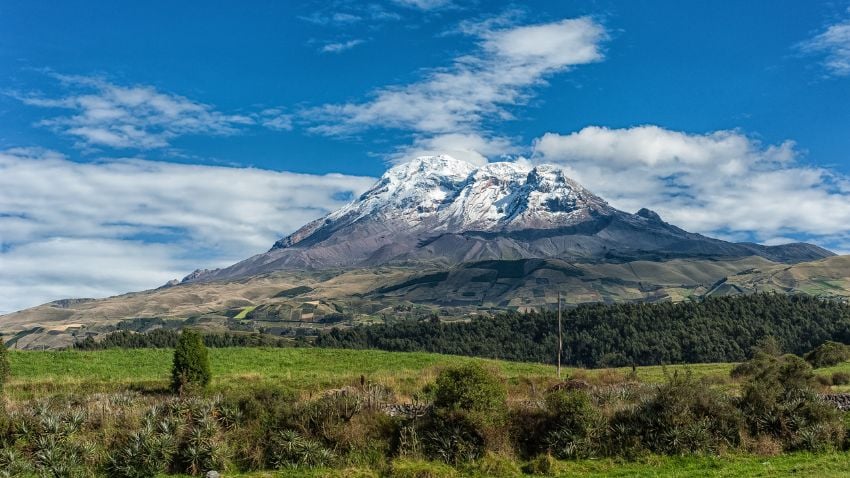
Chimborazo, Ecuador
Given all of these reasons and Ecuador’s steadily improving economy, there’s very little reason why you shouldn’t consider moving to the country. Anyone looking to invest in the Ecuadorian economy can make a fair bit of money in the country, and anyone looking to retire can settle in quite conveniently. With the future of Ecuador secured, despite people making stupid and uneducated claims about the country’s actual worth and the vibrancy of the culture, I don’t think there’s a better place anyone could choose to settle down in.
Ecuador has something to offer to everyone, the young, old, adventurous, or those looking for a laid-back life, and I, for one, would approve of the decision to move there.
If you want the best intel from the expat world, including profitable offshore opportunities, little-known tax-saving strategies, and hard-won insights on immigration, passports, and Plan-B residencies, all delivered to your inbox every single week, then join our daily correspondence, EMS Pulse®. Currently enjoyed by over 84,000 expats and expat-hopefuls worldwide. Fill in the form below to join our newsletter free:

Written by Mikkel Thorup
Mikkel Thorup is the world’s most sought-after expat consultant. He focuses on helping high-net-worth private clients to legally mitigate tax liabilities, obtain a second residency and citizenship, and assemble a portfolio of foreign investments including international real estate, timber plantations, agricultural land and other hard-money tangible assets. Mikkel is the Founder and CEO at Expat Money®, a private consulting firm started in 2017. He hosts the popular weekly podcast, the Expat Money Show, and wrote the definitive #1-Best Selling book Expat Secrets - How To Pay Zero Taxes, Live Overseas And Make Giant Piles Of Money, and his second book: Expats Guide On Moving To Mexico.
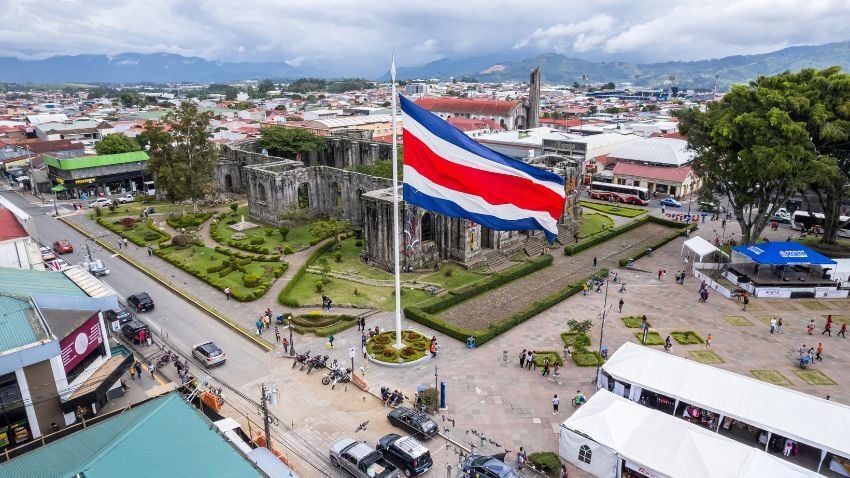
Costa Rica has become one of the most popular expat and digital nomad destinations in Latin America, known for its natural beauty, relaxed lifestyle,...

Mexico remains one of Latin America’s most compelling destinations, especially for North Americans. More than a million expats call it home, and tens...

South Korea is far more than K-pop and K-dramas. It is a country known for outstanding food, from bustling street markets to high-end dining, as well...